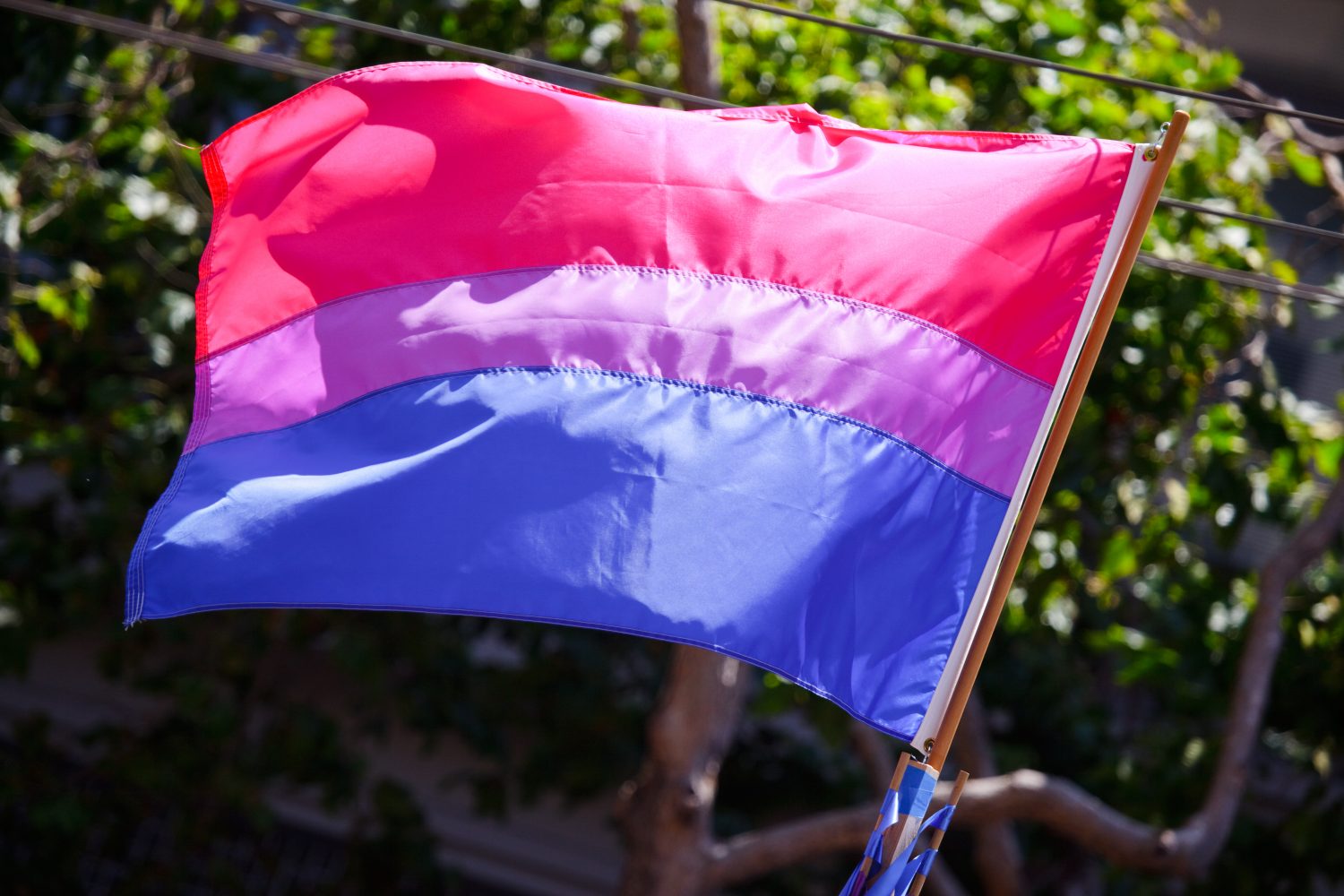Alejandra Piot and Viola Bianchetti smash the stereotypes on bisexuality
Bi+ people are the largest group in the LGBTQ+ community. Yet, they are the least likely to be out. Bi+ people can face rejection from both the straight and the queer communities, are often fetishised or experience harassment, and struggle with their identity more than other groups. This translates in high rates of depression, anxiety, self-harm or even suicide among Bi+ people.


However, things can change. Bi+ visibility, better identification and awareness of the specific forms of discrimination faced by Bi+ people, and greater access to education on mental health and sexual orientation are all needed to allow Bi+ people to be out and live healthier lives.
Bi+ discrimination is specially based in myths and stereotypes that don’t match reality. The most common stereotype being “that they are confused” because they “can’t decide if they like women or men”. This is done through denying its existence, because there is a feeling that it can’t be conceived that bisexuality is a valid option, or even an option at all. This puts Bi+ people in a situation where they are discriminated against both by heterosexual people and the lesbian and gay community.
Monosexism is really present in our culture, especially heterosexual. Most movies and books will show couples that are heterosexual or, otherwise, homosexual, but it’s rare that bisexual or pansexual people would be visible in a natural way. Something to highlight is the different types of discrimination between bi men and bi women. Both genders suffer discrimination and fetishisation, but all of it in different ways. Women will be portrayed as heterosexual but just wanting to seek men’s attention, and men may be seen to be secretly gay and not wanting to come out of the closet fully.
How does this affect mental health?
Bisexual people have higher rates of depression, anxiety and suicide than other groups. 45% of bisexual women have considered suicide, followed by 35% of bisexual men, lesbians (30%), gay men (25%), and much lower rates for heterosexual women and men. This data scares us. It made us realise the need for creating more awareness on bisexuality and how biphobia and discrimination inside and outside the LGBTQ+ community affects our mental health.
Bisexual people are also more likely to be in an abusive relationship, as they believe they are not as valuable as they really are and end up compromising their health because of the thought that no one else will love them.
On the bright side, slowly there is more representation of bisexual people in the media.
One of the highlights are the graphic novels and Netflix series Heartstopper, in which one of the protagonists comes out as bisexual. Also, more celebrities are coming out as Bi+ like Angelina Jolie, Freddie Mercury, Willow Smith or John Lenon among many others.
We will keep working on giving Bi+ people the spaces they deserve within the community as well as outside, and ending the discrimination because of their sexual orientation.
Alejandra (she/her) and Viola (she/her) are two queer activists working in the youth sector in human rights, including LGBTQ+ rights and education. Viola currently works at IGLYO as programmes manager and Alejandra volunteers on mental health for the LGBTQ+ community. If you want to get in touch, don’t hesitate to contact them at alejandra.piot@gmail.com and viola.bianchetti93@gmail.com.
Alejandra and Viola ran a public assembly in Brussels on the topic of Biphobia and Mental Health as part of European Alternative’s Youth Movement and Campaign Accelerator programme.